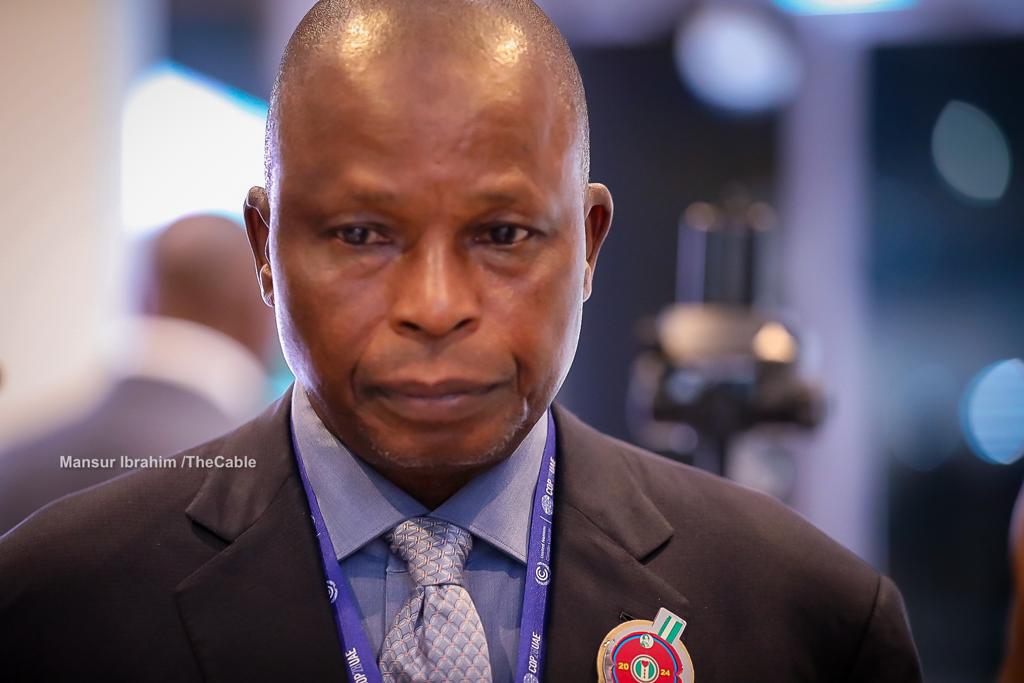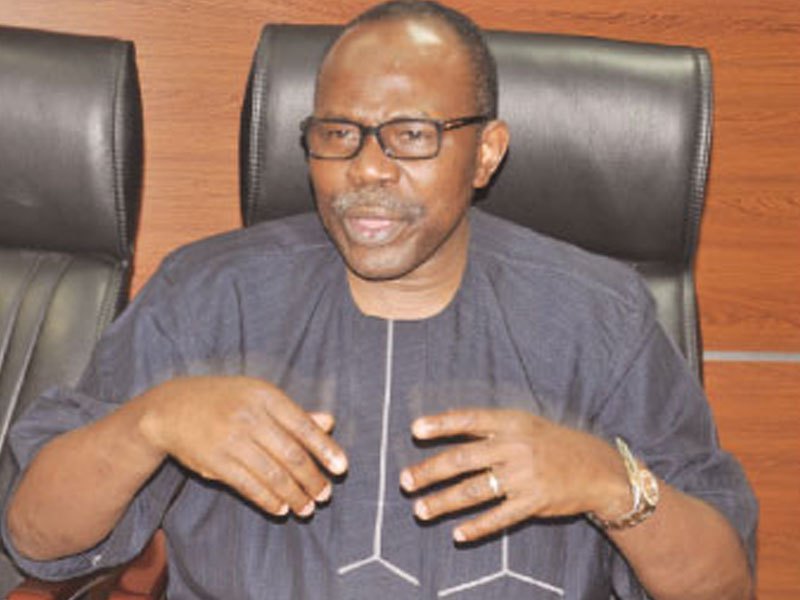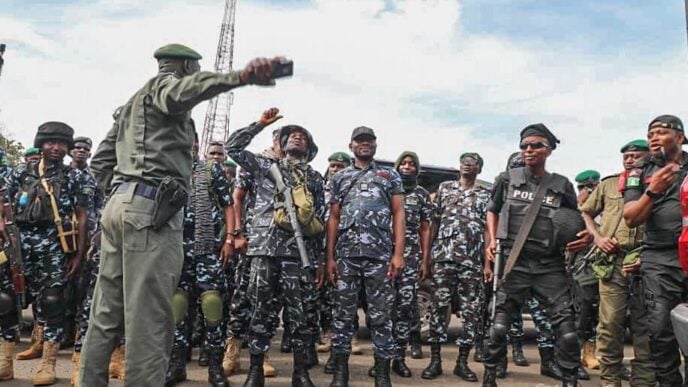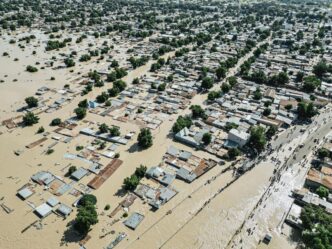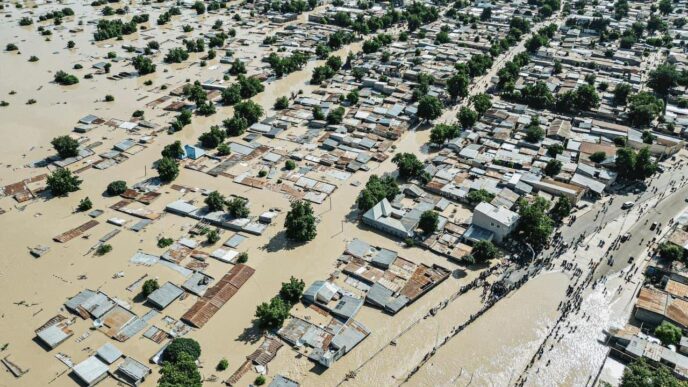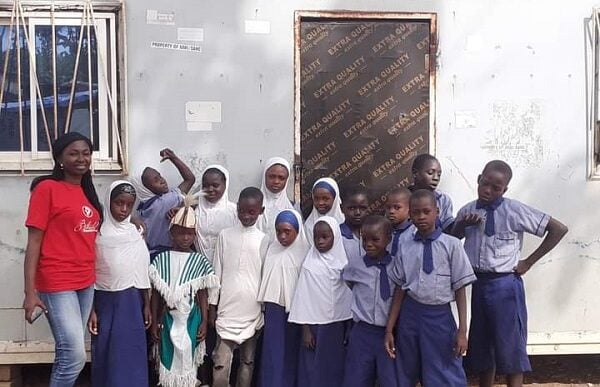Lateef Fagbemi, attorney-general of the federation
The most significant, and recent contribution of the Judiciary to the process of deepening the root of democracy in Nigeria was the landmark judgment by the Supreme Court granting financial autonomy to local governments, being the third tier of government, in the Nigerian federal arrangement. On Thursday, July 11, 2024, the Supreme Court delivered the landmark judgment in a case filed by the attorney-general of the federation and minister of justice, Lateef Fagbemi (SAN) seeking the affirmation of “local governments’ (financial, and administrative) autonomy”.
It would be recalled that the local government was declared the third tier of the Nigerian government, per the 1976 local government reform. But that did not deter some State Governors from subsuming the local government, especially, its treasury into their respective hip pockets.
So, to put it mildly, local governments in most of the States became effeminate. They have become emasculated to the point of non-existence. Development at the grassroots became arrested. Some security analysts even linked the current state of insecurity in the country to the disappearance of local government in the security value chain.
As the clamour for liberation of the government at the grassroots continued, the Attorney-General, and Minister for Justice, decided to approach the Supreme Court for the interpretation of the letter and spirit of the law — section 162 (6, 7), the fourth schedule, and other relevant sections of the 1999 constitution. And to the credit of the Judiciary, the apex court asserted in an unequivocal term that, money accruing to the local governments should be paid directly to their respective treasuries, rather than the previous arrangement in which it would be paid into the State Joint Local Government Account”. This is where the governors have exclusive access to the money, which gives them the impetus to do “violence” to it. The judgment also went further to say that the state government must ensure that, at all time, there is in place, a democratically elected local government council (a chairman and councillors), to appropriate the council’s funds. This is, rather than the culture of impunity that sees the governors sack democratically chairmen and councillors, and replace them with a what they call “TIC”, Caretaker Committee, Liaison Officers, or all manners of nomenclatures that are strange to the constitution.
Advertisement
So, in the aftermath of the judgment, it was so obvious, it did not go down well with some State Governors, even including those who are out of office. Chief among the incumbent who are not so happy with the decision, are Governors Seyi Makinde, and Dapo Abiodun of Ọ̀yọ́ and Ogun states, respectively. We also have the likes Ayo Fayose and Kayode Fayemi, both former governors of Ekiti State, who see the judgment as an abuse of principles of federalism. But the chairman of the Nigerian Governors Forum (NGF), and the executive Governor of Kwara State, Mallam Abdulrahman Abdulrazaq has little or no room to pretend that all is well. But he’s got to lead by example. So, he said that the judgment has, kind of, lifted a burden off the shoulders of his colleagues. According to him, the state governments, most often, augment the local governments’ allocation before they could pay their workers’ salary, on a monthly basis. Nevertheless who cares? All we know is that, the apex court has ruled, and that is it. The import of the discordant tunes among the governors is not lost on Nigerians though, as we are not unaware of the unholy romance between funds belonging to the local government, and some state governors, before the judgment.
Unfortunately, however, as Nigerians celebrate the Supreme Court judgment, hardly does anybody know that some of those governors who have severed working relationship with decorum, and integrity, are busy devising means of undermining the local government autonomy that is consequent upon the judgment without actually appearing to be doing so. This, some are already doing, through the loopholes created by the law establishing the Universal Basic Education Commission (National), and the State Universal Basic Education Board (at the State level).
According to the fourth schedule, section 2(a), the local government shall be responsible for “the provision and maintenance of primary, adult and vocational educations”. And to the best of my knowledge, primary education covers, from classes one to six. But when President Olusegun Obasanjo came up with the Universal Basic Education Commission policy, in 1999, aimed at enhancing the level of literacy in the country, he decided to widen the scope of basic and compulsory education in the country, as formerly encapsulated in the Universal Primary Education (UPE), to cover up to Junior Secondary School -3.
Advertisement
Immediately that policy became operational, the burden of the additional layer of responsibility — the junior secondary education was dubiously, and illegally, pushed to local governments by the State Governors. Meanwhile, the constitution was never amended to accommodate junior secondary education within the scope of what constitutes primary education that the local government should be responsible for. With that, the burden of secondary education which lies on the State government was reduced, albeit illegally, to just 3 years of senior secondary school — SSS 1-3, while adding another layer of financial responsibility to what the local government was already shouldering.
There is no gainsaying the fact that it has constituted a drain on the resources of the local government. As though that is not enough, it is the state government who, through the State Universal Basic Education Board (SUBEB), unilaterally and arbitrarily, determine the number of teachers to be employed in each local government, with the bearers of the financial responsibility having no say. It beggars belief, that recruitment into that segment of UBE is in accordance with the whims and caprices of state government through the State Universal Basic Education Board, who contributes, not a dime, to the payment of their salaries. It is like an uncle, continuing to contract marriages on behalf of his nephew, without any intention of supporting the wellbeing of the family financially. At least, the prospective groom, on whose behalf the marriages are being brokered should even be consulted to find out, whether or not, he is interested in, or prepared for, the marriage. His opinion as to whether he’s in love with the prospective bride, or capable of taking care of the bride after the wedding, should be sought. But that is never the case between SUBEBs and the respective local government in most of the States across the country.
What that means is that SUBEB whimsically recruits, while local governments, as a matter of compulsion, pay. This is, regardless of the development priorities of the local government chairmen who’d promised the people during electioneering, certain deliverables upon assumption of office. To fulfil such electoral promises becomes difficult, if not impossible. That, if allowed to continue, would make a complete mess of the much celebrated Supreme Court judgment on Local Governments’ (financial) Autonomy.
Decree-31 of 1988 which established the National Primary Education Commission is clear on the funding of primary education. It stipulates the formula for funding of primary education in Nigeria, distributing the financial responsibilities, giving Local Government 50% (for teachers’ salaries); State Government 30% (for infrastructures, like building classroom); and the Federal Government 20% (for instructional materials like stationeries).
Advertisement
The State Governors now capitalise on the provision, making sure that 50% of local government’s revenues from the federation account meant for paying the teacher’s salary is exhausted, even when there’s no need for that. It doesn’t matter if what a local government area requires is not up to half of the 50%.
This is a very likely scenario, if the particular local government’s chairman is not on the same page with the governor, politically. So “it is all politics” (apologies to Simon Kolawole). They (the governors) would want to make sure that no such local government chairman has enough money left from the revenue to fund any political rebellion against him — “the emperor”, who form a confederacy with his 35 colleagues to control the President at the federal level. They do not want what goes around to come around. They’re not ready to take a drop of their own political concoction which they force down the throat of the President, and Commander-in-Chief of the Armed Forces of the Federal Republic of Nigeria.
Meanwhile, there’s a reported court judgment, delivered by Honourable Justice M. A. Adewara of the Kwara State High Court, on the 2nd day of April 2019., which was never appealed against.
In his judgment, Justice Adewara said that state government’s action (of deducting local governments’ fund to finance Junior Secondary schools) is antithetical to the Constitution of the Federal Republic of Nigeria and Laws of the state.
Advertisement
Justice Adewara went further to say that: “There is no provision in the Nigerian constitution and the Laws of Kwara state that gives the responsibility of junior secondary school to local government.”
But for the past four or five years, this judgment, even though it has not been appealed, does not seem to be obeyed, as the Kwara State Government, like most of her counterparts across the nation, continues to shirk its responsibility, as far as funding the Junior Secondary education is concerned, which is JSS 1-3. The court judgment is being obeyed, only in the breach.
Advertisement
There is, therefore, an urgent need for clarification on, whose responsibility it is, to fund secondary education, before States Universal Basic Education Board make a mess of the autonomy without openly violating the supreme Court judgment.
I know some people would want to argue that there are Local Government Secondary schools. Yes, there are. But for clarification purpose, I am a product of one. That happens when a particular local government authority strongly feels the need, and is financially capable, to intervene where there are compelling needs to establish a secondary school to serve the people of that particular locality. In that case, payment of teachers and non-teaching staff would be born 100% by the local government, from JSS 1 to SSS-3. It is not different from when a secondary school is established, and run, by a private individual. They are solely responsible for the payment of workers’ employment. The Federal Government also establishes and runs secondary schools — Federal Government Colleges, for instance. After all, education is on the concurrent list of our federal constitution. But basically, secondary school is majorly a responsibility of the State government.
Advertisement
With the lacuna created by the Obasanjo’s administration’s policy of the Universal Basic Education, something needs to be done urgently, either by the national assembly or the court; otherwise, the governors will use the instrumentality of SUBEB to, politically, undermine the financial autonomy of the third tier of the Nigerian federation. Let me appeal to the Attorney-General of the federation, Mr. Lateef Fagbemi (SAN), that his trip to the Supreme Court remains one more on the issue of local government autonomy. State Governors must be stopped from, through SUBEB being the ones determining whether there is a need for the recruitment of teachers, and the number to be recruited, especially when the State government is not the one who’s going to pay those recruits” salary.
If this is not nipped in the bud, the Governors will make sure that local government chairmen are not able to do anything to justify their being in charge of such a humongous amount of revenue that is currently coming to the local governments, as a fall-out from subsidy removal on petrol. They will squander the revenue that is better deployed to executing projects that can drive socio-economic development, on frivolous recruitments that are not need-based.
Advertisement
Abubakar writes from Ilorin, Kwara state. He can be reached via 08051388285 or [email protected]
Views expressed by contributors are strictly personal and not of TheCable.
Add a comment

